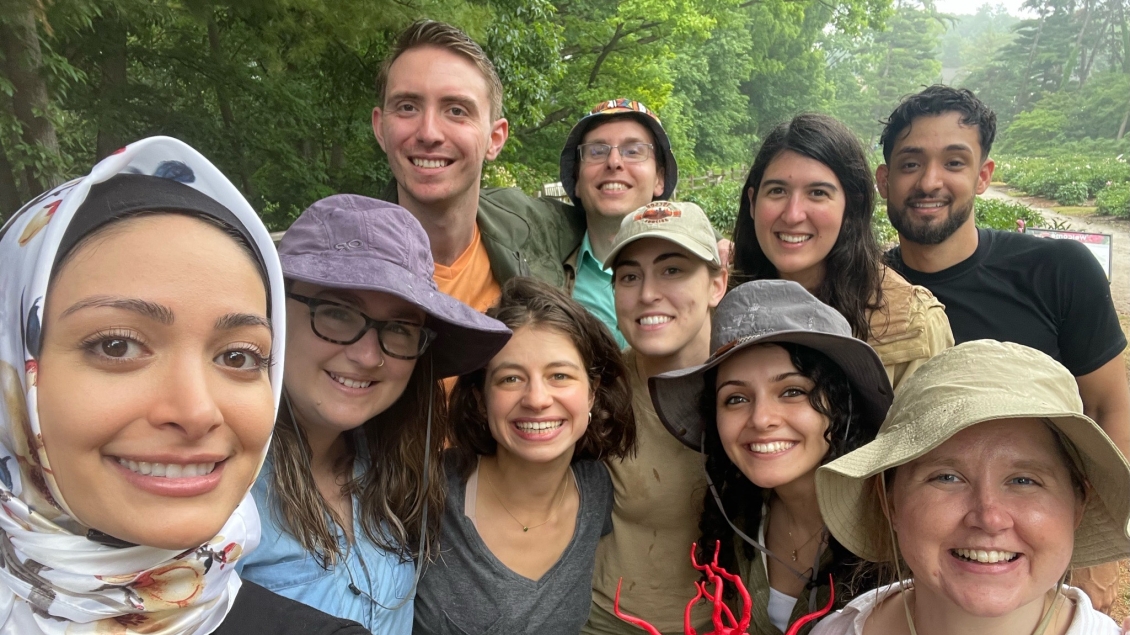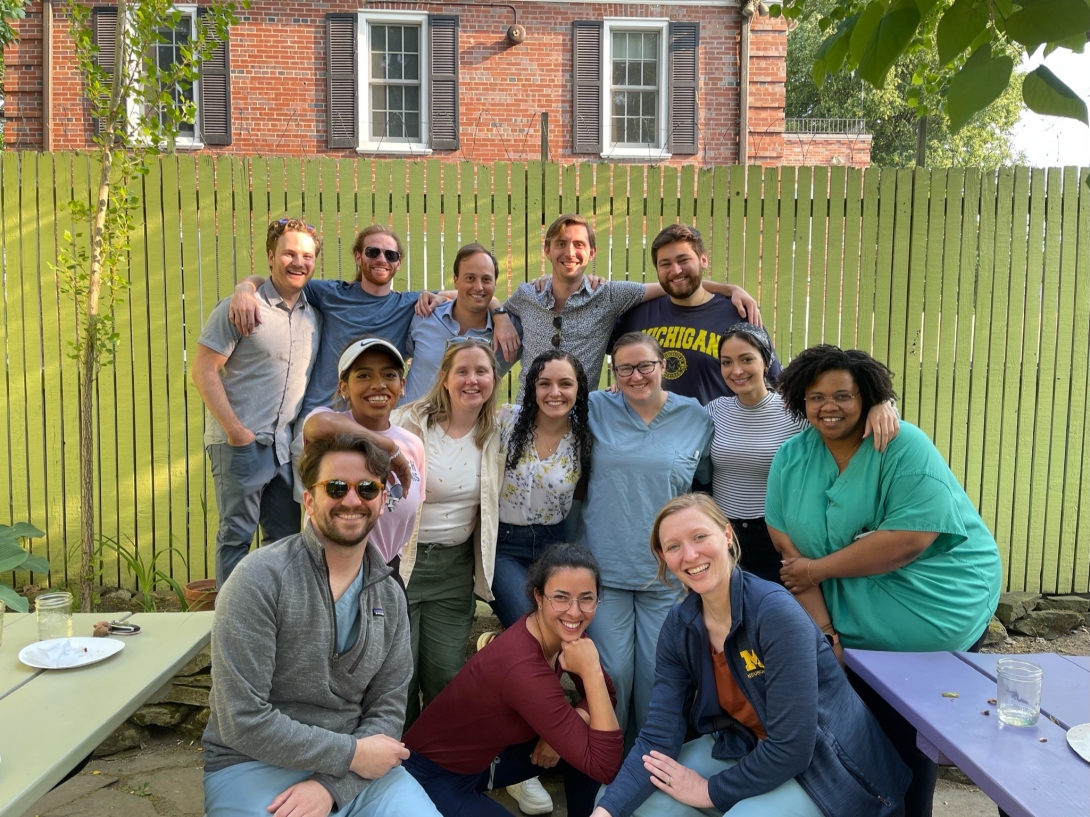
The U-M Medical School Department of Neurology is committed to promoting inclusion, diversity and cultural sensitivity within our department and our community.
Our missions of patient care, education and research are enhanced when people of all backgrounds feel supported, respected and included.

Our DEI team has five subcommittees to carry out this mission. The Neurology DEI Committee is led by Dr. Darin Zahuranec.
- Community Outreach: This subcommittee aims to organize general (e.g. non-medical) volunteer work in local underserved communities coordinate outreach efforts for education to local school systems, as well as outreach to Historically Black Colleges and Universities. Led by Dr. Praveen Dayalu.
- Underserved Medical Care: This subcommittee aims at reducing barriers to Neurological care within our communities. Led by Dr. Galit Levi Dunietz, PhD, MPH, a public Health professional, and enthusiastic clinical faculty members, this sub-committee provides neurological care to Michiganders with limited access to health services.
- Training and Department Engagement: This subcommittee aims to coordinate departmental training activities, town hall discussions, and meeting topics that regularly engage faculty, staff and trainees in the topic. Led by Dr. Darin Zahuranec.
- Recruitment and Retention: This subcommittee aims to ensure best practices in recruitment and retention of faculty, trainees, and staff, track these efforts and ensure that DEI work is appropriately valued in promotions.
- Communications: This subcommittee aims to communicate departmental events, keep an up-to-date list of ongoing activities for the website, track health disparities and DEI-related research, organize multiple sources of outside information on events and develop a plan for regular communication to the department.
- Project Management: This subcommittee supports the work of the other subcommittees and also maintains our DEI records. Led by Amanda Rasnake.
As an institution, Michigan Medicine is committed to creating a diverse and inclusive climate that fosters the highest quality health care and equity for our patients and our work force. To reach this goal, the institution convened an Anti-Racism Oversight Committee (AROC), which is comprised of several sub-groups to address Speaking Up for Solidarity, Meaningful Conversations, Education and Training, Workforce Diversity, Community Outreach, and Advocacy and Professional Development within the larger Office of Health Equity & Inclusion.
The AROC was convened with these specific goals in mind:
- Develop and recommend a plan around contributions we can, and must make to eliminate racism and inequities that may exist today at Michigan Medicine
- Identify practices that contribute to racism and discrimination and recommend changes for Michigan Medicine, if needed
- Identify an approach that achieves an anti-racist culture and utilizes the dashboard to track the progress and outcomes
The sub-groups are developing recommendations and action plans to eliminate harassment, racism, discrimination and abusive behaviors in our work place. More details about their commitments and goals are below.
- Speaking Up / Showing Solidarity: Foster an inclusive culture of anti-racism by providing Michigan Medicine with an escalation framework, education and tools so we feel safe when speaking up and showing solidarity against unlawful bias and discrimination
- Opportunities for Conversation: Provide opportunities for voices to be heard in a safe space, as well as resources and training for leaders to facilitate these conversations
- Education and Training: Recommend changes in medical school curriculum, recruitment and admission practices, and clinical training that promote inclusion and support an anti-racist culture at Michigan Medicine
- Diversification of the Workforce: Identify critical factors in increasing Michigan Medicine’s workforce diversity and recommend targeted short and long-term actions for implementation
- Community Work: Expand and enhance Michigan Medicine's clinical services and community engagement in order to ensure equitable access, experience, and health outcomes for all communities served by Michigan Medicine
- Advocacy / Professional Development: Integrate anti-racism values into our everyday work as a sustainable element of our medical community and culture and direct the inclusion of dedicated time and resources to faculty, staff, and learners for leadership/professional development and advocacy
The Office for Health Equity and Inclusion develops mechanisms for inclusion, diversity and cultural sensitivity among faculty, students and staff at Michigan Medicine.